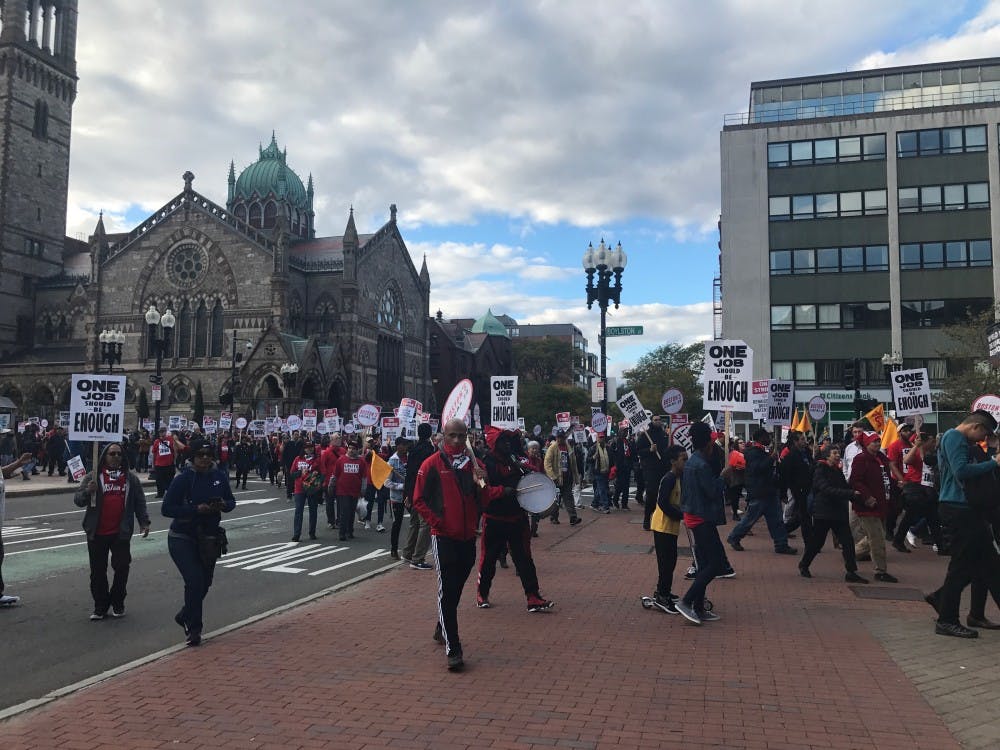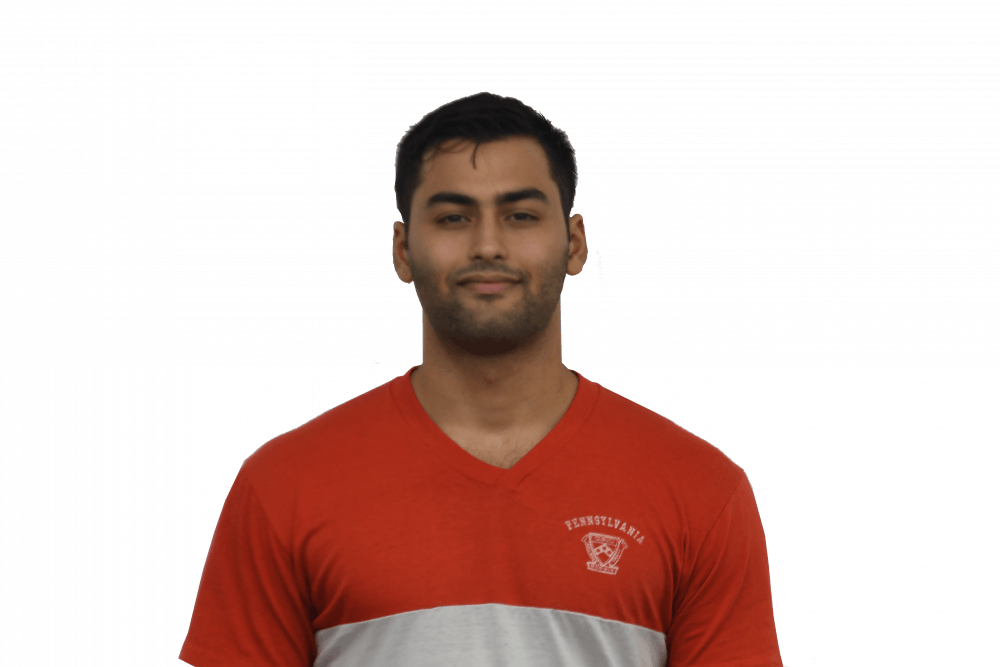
The Flyers played in Boston on Thursday, but notably absent was the imputed working class spirit of their viral mascot, Gritty: As the country-spanning strike at Marriott-owned hotels finished its third week, the Flyers crossed the picket line.
In fact, other professional athletes have stayed at hotels where workers are on strike (teams that scab are 2-10). Sixers coach Brett Brown even joked about sneaking into his hotel, away from the picketers. The Yankees entered their hotel in full view of picketers from UNITE-HERE Local 26, who rightly called them out for being scabs.
This entire affair, from the aloof lightheartedness in press conferences to the silent indifference in hotel lobbies, is disgraceful in a country racked by Gilded Age inequality and increasingly anti-worker governance.
It seems especially wrong when professional athletes are unionized and through this representation, have won six-figure minimum salaries. Beyond how profitable professional sports are, their unions’ power is proportional to the uniqueness of their labor: Professional athletes know that the management needs them more than they need the management. For example, during the 2011 NBA lockout, players worked their trade in exhibition games and foreign leagues.
For unionized workers in less glamorous industries, they have a steeper climb to the bargaining table, and they need all the help they can get. That is why when a group calls for a picket line, worker or consumer, you don’t cross it.
While the MLB Players Association said in a statement to SB Nation “[the strikers] deserve our support,” teams continue to cross the picket line.
In this regard, the Flyers particularly stand out. While Gritty’s pro-labor politics are largely a leftist meme, the management hosted a 'Labor Union Night' on Oct. 16. Only a week later, they then crossed the picket line in Boston.

How can a team representing a city with a vibrant history of organized labor, whose mascot was officially recognized by the Philadelphia City council, betray the working class? Speaking to Boston Magazine, Brian Lang, the president of Local 26, put it best: “[Gritty is] a symbol that has been fabricated by a greedy organization to manipulate the sentiment, the genuine sentiment, of pride in being working class in the city of Philadelphia.”
Expressing solidarity in name only, as the Flyers did, is one of the easiest things to do, only marginally less difficult than adjusting a large hotel reservation. While to be expected of cynical profit-driven businesses, even progressive advocates like the rapper Common have crossed the picket line. That’s why, more than ever, it’s necessary to stand up alongside those struggling for a better life.
Players have less say in hotel choice than the management, but it is no trouble to start the change in their locker rooms: Our capacity for political change rests in our connections to our peers, including our teammates and coworkers. If politically engaging for the better can begin with minor things like changing a hotel reservation, there should be no excuse for neutrality.
It’s worth noting what an Edmonton Oilers spokesperson told CBC: “[the team] doesn't want to get involved in the matter between the hotel and its union workers." In the context of the strike, the “neutrality” of crossing a picket line translates to weakening the power of the strikers.
Solidarity is easier than you might think. Last Saturday, Philly hotel workers woke up hours before dawn to bus up to a solidarity rally in downtown Boston alongside the strikers. Grandmas came with their grandchildren and parents brought their own kids to help sustain the ongoing strike. They listened to fervent speeches from Brian Lang, from AFSCME president Lee Saunders, from the mayor of Boston, and from other union leaders supporting the strike. Most moving of all, a panel of workers addressed the crowd in Cantonese, Arabic, Amharic, Haitian Creole, Spanish, Portuguese, and Boston-touched English, all crying out to thunderous applause. Their mantra: One job should be enough.

The bottom line is that actions in solidarity extend beyond thoughts and prayers or empty gestures of support. When a group of people declare they need help, it is our duty as allies to support their struggle, or at the minimum, respect their picket lines. Anything less is traitorship.

CARL-EMMANUEL FULGHIERI is a College senior from Carrboro, N.C. studying economics and philosophy. His email address is caful@sas.upenn.edu.
The Daily Pennsylvanian is an independent, student-run newspaper. Please consider making a donation to support the coverage that shapes the University. Your generosity ensures a future of strong journalism at Penn.
Donate






